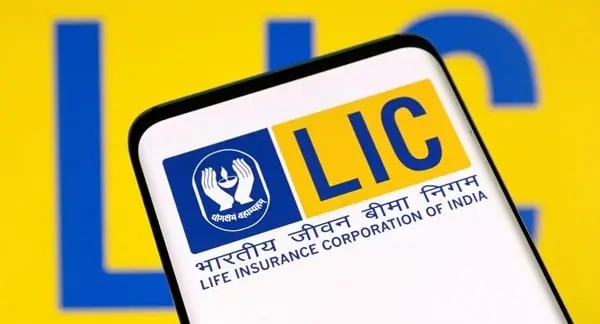Life Insurance Corporation of India (LIC), the country’s oldest and most trusted insurance giant, stands as a pillar of financial security and national development. Founded in 1956 through the merger of over 245 private insurers, LIC has evolved into a household name, synonymous with life insurance for millions of Indians. Even as the insurance sector in India opens up to intense private competition and digital disruption, LIC remains a dominant force—boasting the largest market share in life insurance, unmatched brand recall, and deep penetration across rural and urban India.
With its IPO debut in May 2022, LIC transitioned into a publicly listed company, marking a significant milestone in its modernization journey. As of 2025, LIC continues to adapt to evolving market dynamics through digital innovation, strategic partnerships, and diversification of its investment portfolio. Here is a comprehensive SWOT analysis that captures the strengths, weaknesses, opportunities, and threats facing LIC in 2025.

Strengths
1. Brand Equity and Trust
LIC enjoys unmatched brand loyalty, built over decades of reliable service and government backing. With more than 250 million policyholders, it is one of the most recognized and trusted brands in India.
2. Widespread Distribution Network
LIC has the largest network of agents in the country—over 13 lakh—spread across every nook and corner of India. This unparalleled reach allows LIC to cater to even the remotest rural populations, giving it a massive advantage over private players.
3. Strong Financial Base
LIC is one of the largest institutional investors in India, with an asset base of over ₹50 lakh crore. Its ability to generate consistent investment income through government bonds, equity markets, and real estate offers long-term sustainability.
4. Government Backing
As a government-owned enterprise, LIC enjoys sovereign trust and support. This enables it to maintain stability even during periods of market uncertainty, unlike its private counterparts.
5. Diverse Product Portfolio
LIC offers a wide range of insurance and investment products including term insurance, endowment plans, pension schemes, ULIPs, and annuities. This caters to every income segment, life stage, and risk appetite.
Weaknesses
1. Legacy Systems and Bureaucracy
Despite recent efforts toward digitization, LIC still relies heavily on outdated IT infrastructure and manual processes. This hampers operational efficiency and delays customer service.
2. Low Digital Presence Compared to Private Insurers
Private players like HDFC Life and ICICI Prudential have aggressively leveraged digital platforms for sales, claims, and customer engagement. LIC lags in offering a seamless, tech-enabled customer experience.
3. Limited Flexibility in Pricing and Innovation
Being a government entity, LIC often faces regulatory hurdles and slower decision-making, which affects its speed in launching new and innovative products.
4. High Dependency on Individual Agents
A significant chunk of LIC’s business still comes from traditional agents. This limits scalability in today’s digital-first environment where customers increasingly prefer direct-to-customer models.
Opportunities
1. Digital Transformation and Fintech Collaborations
LIC has begun investing in digital initiatives and mobile-first strategies. Collaborating with fintech startups and upgrading its tech infrastructure can help it appeal to younger, tech-savvy customers and reduce operational costs.
2. Rising Insurance Penetration in India
India’s life insurance penetration remains low compared to global standards (around 3.2% of GDP as of 2024). With rising middle-class income, financial literacy, and awareness post-COVID-19, the insurance sector has enormous untapped potential.
3. Global Expansion
LIC has already established a presence in countries like Fiji, Mauritius, and the UAE. As India’s global diaspora grows, LIC can tap into overseas markets to diversify revenue streams and build an international brand.
4. Cross-Selling Opportunities
With its strong customer base and trust, LIC can leverage cross-selling of mutual funds, health insurance, pension schemes, and banking services—especially in collaboration with IDBI Bank, where it holds a majority stake.
5. Regulatory Reforms and Government Push
The Indian government’s push for insurance inclusion through schemes like PMJJBY (Pradhan Mantri Jeevan Jyoti Bima Yojana) and digital identity (Aadhaar) integration opens new doors for LIC to reach the uninsured population.
Threats
1. Intensifying Competition
LIC is facing stiff competition from private life insurers like SBI Life, HDFC Life, Max Life, and international players that offer more agile, tech-driven, and customer-centric products.
2. Market Volatility and Investment Risks
As a major investor in Indian equities and government bonds, LIC is vulnerable to market downturns and changes in interest rate policies. This can impact its profitability and solvency ratios.
3. Changing Consumer Preferences
Millennials and Gen Z prefer instant, paperless, and customizable insurance products. If LIC does not keep up with these trends, it risks losing relevance among future generations.
4. Regulatory Pressure
As a listed company, LIC must now comply with SEBI norms, transparency standards, and periodic disclosures. Any misstep or delay in adaptation could impact its public perception and share value.
Conclusion: A New Era for LIC
The Life Insurance Corporation of India stands at a pivotal juncture—rich in legacy, yet poised for reinvention. As India’s economic engine accelerates in 2025, LIC’s journey from a government-dominated behemoth to a competitive, tech-savvy, and globally adaptive insurer will define its next chapter. Its strengths in trust, reach, and capital provide a solid foundation, while its adaptability to modern challenges will determine its future leadership.
With the right blend of policy support, digital transformation, and customer-centric innovation, LIC can continue to thrive as not just India’s largest insurer—but also its most future-ready financial institution.

Meet Suhas Harshe, a financial advisor committed to assisting people and businesses in confidently understanding and managing the complexities of the financial world. Suhas has shared his knowledge on various topics like business, investment strategies, optimizing taxes, and promoting financial well-being through articles in InvestmentDose.com


